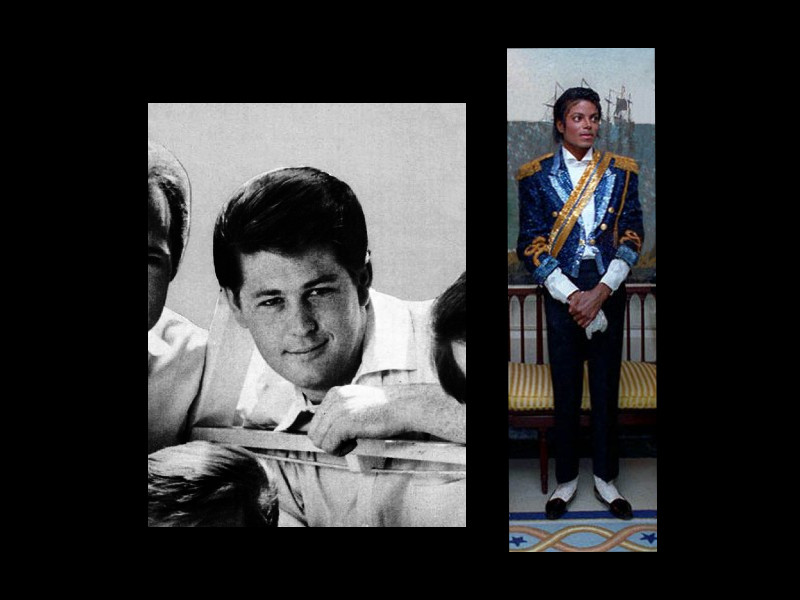Pop culture fandom takes on the nature of initiation into an esoteric order. The fan knows something others don’t. This is especially true of the Beach Boys and Brian Wilson. We ask: Have you seen “love&mercy?” Which version of “Smile” do you like? Getting into the Beach Boys shows you’re cool beyond the need to look cool, evincing enthusiasm for a potentially corny, dated group because you get their avant-garde musical moves and their place in the course of 1960s music history.
And it’s true, the Beach Boys were pushing the envelope so aggressively in the mid-60s that they threatened to become the defining American rock act. Their albums competed tit-for-tat with the Beatles’ in this national contest.
And the Beach Boys have now racked up a mess of certified-Gold albums— but the bulk of sales comes from compilation albums and ongoing studio and tour output since the 80s, when they turned to capitalizing on nostalgia and the “oldies” market. Due to the problems plaguing their leading light Brian Wilson and attendant interpersonal issues, the Beach Boys were unable to keep up the creative drive that made them so ahead-of-their-time in the 60s and set up such high expectations for the never-released “Smile.” The landscape of American rock in which the Beach Boys fulfill their promise remains an unfulfilled prophecy contemplated by devoted initiates to the myth.
Clearly the transition from a family band making hits by formula to an auteur act that pushes American music forward can be made: this was the course navigated by the most successful American recording artist of all time, Michael Jackson.
When we look at Jackson and Wilson’s careers together, the timeline is chiastic, with MJ’s string of provocative best-selling albums taking off with “Off the Wall” in 1979, just after the Beach Boys were releasing their last albums of any creativity.
Brian Wilson has acknowledged the kinship himself in a 1999 interview with Index Magazine:
CAROLE: This may sound a little obscure, but do you ever feel an affinity with Michael Jackson?
BRIAN: Yeah, I do. I actually do have that feeling about him.
CAROLE: I just say that because he played in a band with his brothers, he’s very musically talented, and he had a very painful family upbringing, particularly his relationship with his father.
BRIAN: Yeah, there are a lot of parallels between him and me.
CAROLE: And there’s a tender, fragile side to him that I also see in you.
Each artist’s early experiences in family bands didn’t happen in a vacuum, though. The Beach Boys and The Jackson 5 each operated in a regional, racial music scene. Each act mastered this scene and performed a vision of the post-war American family under intense direction of a tyrannical father-manager.
But their fates diverged in their respective careers during the transition out of the confines of family management and genre pigeon-holing.
Brian Wilson led his brothers in expelling his father from managing them. The Jacksons, even though the abuse they suffered seems to have been far more serious, continually negotiated their relationship with their father Joe.
The Wilsons were trying to produce albums that set the standard for rock and were distinctively American, given their intense consciousness of competition with the Beatles. It was Brian who pushed them, and Brian’s vision that resulted in “Pet Sounds,” which cemented their position as serious contenders in this contest.
But, of course, Brian Wilson was not able to live up to the publicity which touted his status as “a genius.” The aborted “Smile” holds the curious place in rock criticism and lore as the album that would have been the greatest, most avant-garde and influential rock and roll record to date in 1967.
Brian Wilson failed to seize rock’s Mandate of Heaven, but was mostly spared from the depths of self-destruction. His brothers in the band pulled him from his drug-fueled paranoia and obsession, but his vital leadership of The Beach Boys songwriting project also suffered. In the eyes of rock history, he flew too close to the sun, but before he could completely crash, he was able to fall back on his brothers and into the limits of the easy-going, Southern California youth and fun they were supposed to epitomize. “We’re going to make a homespun version of ‘Smile’ instead. We’re just going to take it easy,” Carl Wilson says of that moment.
Here we can see why Michael Jackson’s transition to pop supremacy was unstoppable while Wilson fell off. The upbringing of the Jacksons would never have allowed such a decision. In the moving and disturbing interview he gave to Oprah Winfrey in the mid-1990s, after his first round of legal trouble for child sexual abuse, Jackson pointed to Joe Jackson’s brutal discipline as the source of both his trauma and his success. He placed the violent will his father exercised over the younger Jacksons as rooted in his historical experience of poverty and Jim Crow.
What would have been? Can analogy suggest that Wilson, had he won the crown as Jackson did, would have transcended and transgressed the role of a normal human performer, with similar highs and lows both mesmerizing and ghastly? Or is the gulf between the experiences that make the music too wide to make a comparison?
Now, it feels to me like the only way we reconcile ourselves to the final, total view of Jackson at his height, is to acknowledge that for our purposes, he wasn’t just a musician, but a musical divinity. This is less charitable than it sounds. As pagans who live among multiple, competing, capricious gods, we understand that Jackson’s discomforting physical appearance, superhuman feats of movement and expression, and his potential for serious violations of our persons and moral order, are all part of an aura that tells us to stand in awe, and maintain our justified fear and distance.
There are many who maintain this reconciliation daily, who say ‘yes’ to the overwhelming experience of the god and maintain their devotion. First of all, Jackson’s oeuvre is a permanent fixture, reflecting and influencing the totality of America’s music and collective unconscious in the 20th century. Joe Jackson’s mission for his children was to produce a “crossover” act. Their breakout star didn’t simply transcend a musical market, but through his passion of physical and artistic transformation, achieved an ineffable and powerful transcendence from which his late 20th century Black listeners drew a basic orientation, the Great Migration and Jim Crow becoming just distant enough to be cultural background rather than daily reality. And those who maintain faith in MJ have a different standard of truth than the uninitiated when it comes to the allegations against him. The question of what status to accord him can’t even be posed by the outside society.
Friedrich Nietzsche described the function of Greek tragedy as a way of viewing one’s gods. Its kernel was the chorus, whose musical chant came from earlier rites—it was a group of satyrs, wild creatures whose singing and dancing, focused on their master, would draw the bystander in. The heights of the tragic form were reached when this ecstatic impulse, identified with its traditional locus Dionysos, was focused on the perfected divine and mythic images exemplified by the other god of music, Apollo.
Nietzsche says the Greeks pursued the refinement of these impulses because of a shared awareness of what he calls the “wisdom of Silenus.” Silenus was a forest spirit who revealed to King Midas a prophetic truth: that what is best for human beings is “not to have been born,” or failing that, to die soon. Life is pain, princess. Tragedy took as its subject figures like Prometheus and Oedipus, who were shaped in the Apolline, Homeric image but were blasted with forbidden knowledge and crushed by fate—the vision of a culture shot through with a sense of the pain and horror of existence.
The two prototypical Black musical forms, the delta blues and the second-line funeral, similarly present mythic heroes or ecstatic dance against a backdrop of a cruel existence. And like the height of Greek tragedy, MJ fused both impulses. In “Off the Wall,” the specific lyrics are famously hard to understand and relevant far more for their mantic exhortation to dance than any content, as the adult Jackson bursts onto the scene over Quincy Jones’ whirling production. After establishing his chops at creating this overwhelming ecstatic experience, Jackson used his pioneering explorations in music videos, costuming, and stage performance to create an iconic and somewhat bewildering suite of American mythic imagery, casting himself as a gangster, a werewolf, or an urban hero, dancing inhumanly as a robot or a man on the moon. His lyrics cleaved toward similarly gothic subject matter, but there was never the complete synchronization of music, lyric, and image as in an opera.
The Beach Boys’ best achievements on “Pet Sounds” similarly have a grounding in imageless ecstasy, the brothers’ harmonies and the Wrecking Crew’s complex studio work creating a soundscape that evokes something of the grandeur and underlying pain of the world. The lyrics are completely irrelevant, as in “Sloop John B,” or are themselves deeply pained beneath the Apolline image of the wholesome youngsters, as in “Wouldn’t It Be Nice.”
For these reasons, the composite musical projects of the Beach Boys and Michael Jackson at their peak are able to bring audiences into the transcendent experience of seeing the dream images of their god, serving as the initiatory experience that creates a community of loyal secret knowledge.
But the existing cults of Wilson and Jackson are weirdly reversed. Brian Wilson has earned his followers, but is given overblown tragic significance thanks to the lost-cause narrative they weave. The narrative of his rise and fall is given Promethean proportions, though he didn’t successfully bring the fire back and never paid the final price.
Jackson holds a far wider loyalty, and among his devotees there is a spectrum from simple de-emphasis, to naive denial, to elaborate conspiracy-theorizing to maintain his admirable status despite despicable deeds. For the hardcore fans, his innocence is part of cultic lore. In fact, lay enthusiasts frequently relate Jackson’s own explanation of his associations with the boys he abused as a second chance at a childhood lost to stardom. It’s a denialism that relies on sentimentality. It robs Jackson of both moral culpability and tragic stature.





